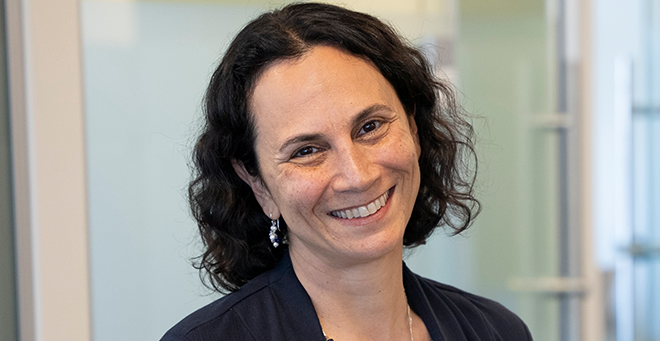
The program provides support to pediatric primary care and integrated behavioral health clinicians to address treatment gaps in the mental health of young children ages 5 and under.
A new statewide program developed by the University of Massachusetts Chan Medical School is helping to close the treatment gap for mental health issues in children ages 5 and under.
The Massachusetts Early Childhood Child Psychiatry Access Program (MCPAP) provides a support services hotline, training, support, and guidance to primary care pediatricians from the time early intervention services are no longer available until a child enters kindergarten.
The program is a collaborative project between UMass Chan, UMass Memorial Health and the Massachusetts Department of Public Health.
“This is not just about providing a consultation; it's ongoing training and education for front-line primary care clinicians,” says Yael Dvir, M.D., associate professor of psychiatry and pediatrics, vice chair and director of child and adolescent psychiatry, and medical director of MCPAP for infants. “In conference calls with early childhood-trained behavioral health clinicians, we don't just give you the answers. We go through each case together and build knowledge so pediatricians can navigate when situations can be complicated and understand that these issues continue to change and evolve.”
At a glance
Massachusetts' Early Childhood Child Psychiatry Access Program aims to address treatment gaps in mental health for children ages 5 and under. This new statewide program provides a hotline for primary care clinicians to speak with behavioral health clinicians who can provide multi-session evaluations and written consultations. There are three MCPAP Early Childhood Program sites covering the entire state: North Boston, South Boston, and Central West, located at UMass Chan Medical School.
The original MCPAP program was established in 2004 based on a pilot program conducted by the UMass Chan Department of Psychiatry, and child psychiatry consultation programs based on the MCPAP model are now available in 49 states.
The MCPAP Early Childhood Program serves the entire state with three locations in North Boston, South Boston, and the Central West at the University of Massachusetts Chan. Each location is staffed by a behavioral health clinician, licensed social worker, or child psychologist.
The Central West team, led by Dr. Dvir and including LISCW's M. Carolina Clark and Kara Lindquist (MD'16), assistant professor of psychiatry, will serve as a statewide expert hub for early childhood MCPAP. The program protocols were developed from a pilot program launched at UMass Chan in early 2022.

Yael Dvir, MD
This new service will provide pediatric primary care and integrated behavioral health clinicians with rapid access to MCPAP consultants over the phone. Issues addressed by behavioral health clinicians include attachment issues, internalizing and externalizing disorders, and trauma.
Consultations are conducted with MCPAP behavioral health clinicians and psychologists who have received special training from the Central Western team during early childhood. These consultations help pediatricians address behavioral health issues in young children, including providing resources, conducting in-person and virtual interviews with families, and recommending additional evaluations and treatments.
Marisa Matsudaira, LICSW, pediatric mental health care access coordinator for the Massachusetts Department of Public Health, said mental health issues are one of the most frequent sources of stress for families with young children, and a program approach that considers the whole family is important for early intervention efforts.
“Child behavior and mental health are some of the fastest growing issues that are causing stress for families and family dysfunction. MCPAP's mental health expertise and the team they've put together for early childhood mental health is phenomenal. It's really important to really look at the health of early childhood relationships and to think of parents and children as a dyad that really can't be separated and to spread that framework into pediatric practice,” Matsudaira said.



